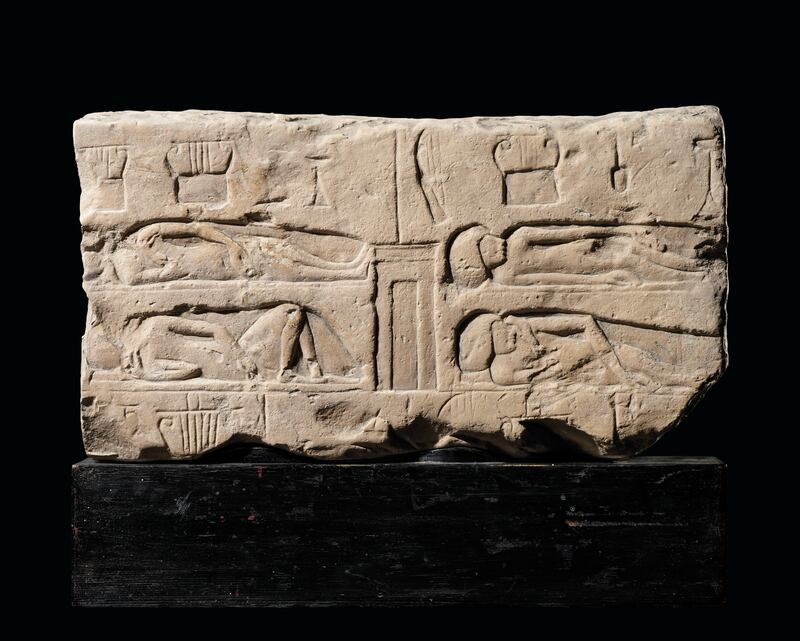An ancient Egyptian limestone relief depicting a group of sleeping female musicians is likely to leave the UK if a domestic buyer cannot be found.
The artwork shows the musicians asleep in the palace of the ancient Egyptian pharaoh Akhenaten and is believed to have been created at some point during his reign from 1351 to 1334 BC.
The relief is unique in its depiction of women as musicians and having females as the focus of attention, the Department for Digital, Culture, Media and Sport (DCMS) said.
The department said the size of the relief is also distinctive, given very few reliefs from the same period have survived in such a large single piece, with four figures depicted on the same fragment of stone.
Arts and heritage minister Lord Parkinson of Whitley Bay said the relief is extremely valuable.
“This limestone relief offers a beguiling glimpse into daily life in the Amarna period of ancient Egypt and is hugely valuable to academics researching this fascinating period of history," he said.
“I hope a UK buyer can come forward so this important artefact can be enjoyed and studied here by future generations for the benefit of people all over the world.”
The minister’s comment follows the advice of the Reviewing Committee on the Export of Works of Art and Objects of Cultural Interest – an independent body serviced by Arts Council England which advises the DCMS on whether an object intended for export is of national importance.
The decision to place an export bar on the relief was made after the reviewing committee’s recommendation on the basis the art meets a number of criteria for its outstanding contribution to the study of Amarna period, Egyptology, art history and early human societies. The export bar will allow time for a UK institution to acquire the work.
“This ancient object speaks to us with extraordinary clarity across thousands of years," committee member Pippa Shirley said.
“It shows an instantly recognisable subject – a group of women asleep. They are musicians and we see them in wholly natural, individual poses, lying on mats with sheets drawn up around them, with their instruments (harps, lutes and box lyres) close at hand and a brazier in each room to keep them warm.
“They are part of the entourage of the fabled pharaoh Akhenaten and his equally famous queen Nefertiti, and are depicted with great care by the sculptor in their palace quarters.
“Glimpses of the private lives of servants from this period are immensely rare, and this one, in the revolutionary style developed by Akhenaten for the palaces and temples at his new capital city, Amarna, is unparalleled.
“Although only a fragment, the light the relief casts on aspects of art, culture and daily life during the reign of one of the most intriguing rulers of ancient Egypt means that every effort should be made to keep it in this country.”
The decision on the relief’s export licence application will be deferred until April 22. Its owners will then have 15 days to consider any offers at the recommended price of £69,300, plus VAT, which can be reclaimed by eligible institutions.
The second deferral period will start after the signing of an option agreement and last three months.







